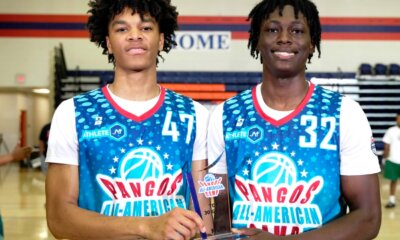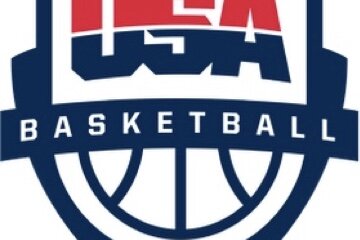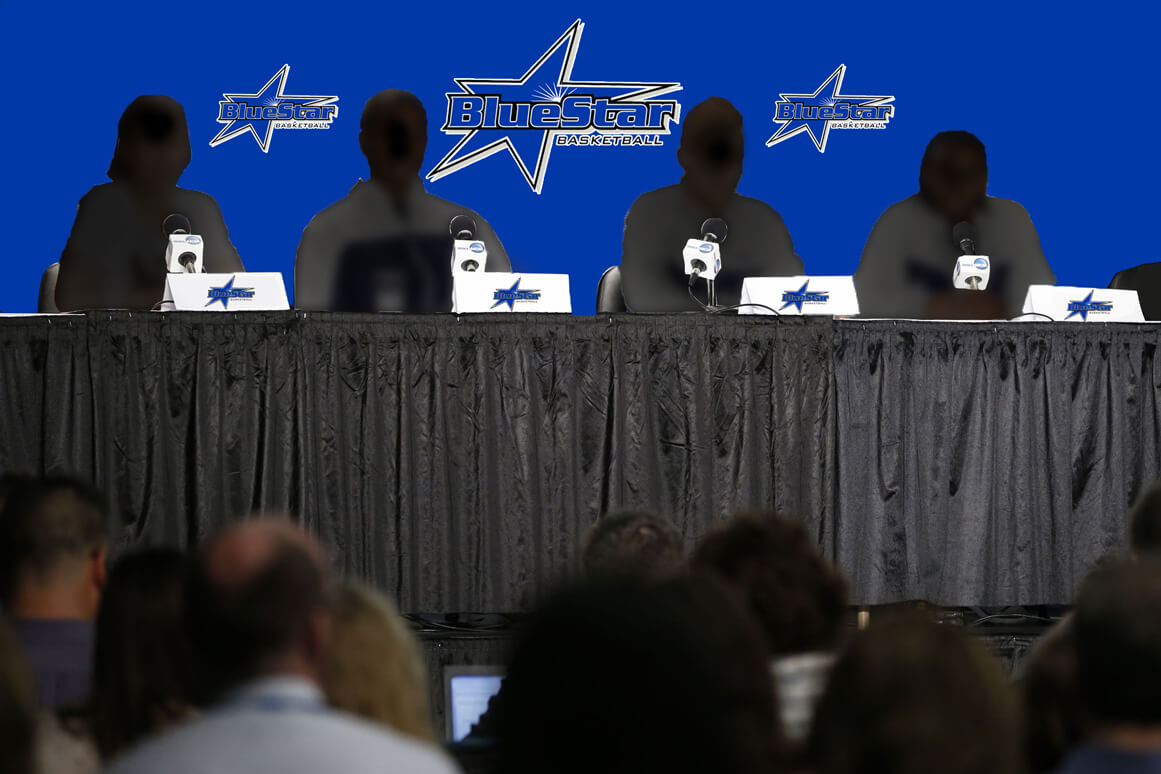I really don’t want to revisit this in June, but a couple of recent, widely-distributed pieces by mainstream media outlets about one of the persistent bugaboos of women’s college basketball — the gender of the coach — need a proper response.
When Arkansas hired Jimmy Dykes more than two months ago to lead the women’s program, I wrote at the time that I didn’t think much of the choice because he had absolutely no background in the women’s game.
I heard from a number of coaches, including men in the women’s ranks, who felt the same way.
Some of those same coaches — again, including some guys — weren’t enamored a few days later when Louisiana Tech hired Tyler Summitt, who had been a women’s assistant for all of two years since his own college graduation.
What I tried to make clear in those posts was that quite a few people within the sport, regardless of gender, were concerned about what they thought was the low regard athletics directors had for women’s hoops to make such hires.
I was also clear that this shouldn’t be viewed as an issue about gender, although I know there are women coaches who took a dim view of both of these hires precisely for that reason.
It’s unfortunate, because the many contributions of male coaches who’ve been invested in this sport at all levels for many years get ignored, if not demonized.
But last month, Kate Fagan of espnW railed against what she called a “double standard” — since women aren’t coaching men’s teams, continuing her tiresome diatribes in this vein.
I’m not sure why she was weighing in so late after the fact, but earlier this week, Seth Davis continued the narrative in a piece posted on the Sports Illustrated website with the headline, “In women’s hoops, why is the number of female coaches dwindling?”
Davis talked to Stanford’s Tara VanDerveer, who gave him an earful, saying the Dykes hire was “very depressing.”
She also said this: “When I hear someone say ‘We’re going to hire the best person,’ to me that’s such bullshit. I’ve had guys say to me flat out it’s just easier to get into women’s basketball than men’s basketball. Truth be told, they’d like to have the men’s jobs, but it’s too competitive.”
While I’m not surprised by her reaction, and I’ve always admired VanDerveer’s candor, this is disappointing.
Even more striking were comments by Yale coach Chris Gobrecht, formerly at Washington, USC and Florida State: “We have a crisis in our game, and it’s a crisis that no one is willing to address for fear of being seen as anti-male. We’re turning out a generation of women basketball players with no place to go should they choose to stay in the game they love. I’m shocked that people are not more disturbed by this. If we were talking race instead of gender, can you imagine the uproar?”
Gobrecht has been never been known to mince words, so I’m not shocked. But there are so many things to unpack about those claims. I’ll start with women apparently having “no place to go.”
This is the line we’ve heard for so long, dating back to the start of the NCAA era for women’s sports in the early 1980s, when male ADs were starting to hire women’s coaches. Some women who had been coaching went back to the classroom, as some were tenured professors. Others decided not to stay on as the coaching ranks were becoming more professionalized.
And young women who had graduated after playing basketball took advantage of the growing number of career choices offered, thanks to Title IX opportunities. They continue to do this, and as I type this sentence I’m thinking of a couple of former SEC stars who have gone off into the business world, after trying their hand at coaching. There are many more like them. 
What Davis may not have known, and what gender-focused coaches never mention, is that the further down you go in the women’s coaching ranks, the more male they become.
The six-figure salaries and multi-million dollar operating budgets aren’t there like they are where VanDerveer operates, so the notion that men are flocking because of Willie Sutton’s law is oversimplified.
At the Women’s Final Four last year, I met former Iowa men’s star Acie Law, who had been involved in a boys’ AAU program in Iowa City. He told me he switched to the girls’ side at the request of some parents, “because there was a need” for their daughters to play in a better organized set up.
I have a hard time understanding how this is hurting the women’s game, or setting back any females who want to coach. Some girls in Iowa City have benefitted, but this is overlooked.
The better questions to ask here are why more women aren’t working their way from the ground up, like most every man must if he wants to have a career in the women’s game. The only high-profile female coach I can recall coaching at the high school level is Sherri Coale of Oklahoma.
Why aren’t more women following her lead? Why aren’t they emulating people like Barbara Stevens, who won a Division II title at Bentley College, and who is one of the venerable figures in the sport? Or former UConn star Carla Berube — part of Geno Auriemma’s mostly female coaching tree — who took Tufts to the Division III semifinals?
There are quite a few women coaching at the mid- to high Division I level who have never known anything else — first, as players and now as coaches. Is this the best way to prepare the next generation of coaches, to develop a deep and diverse talent pool of future coaching leaders?
These considerations get lost amid the hyperbole, and the mournful numbers tracked by Vivian Acosta and Liz Carpenter for more than 35 years that play into “The Glass Sneaker” narrative that Davis picked up without much scrutiny.
But as I wrote here last winter, this kind of bean-counting provides numbers without context and foments dogmatic reactions that don’t do much to address more pressing issues in the sport.
Gobrecht calls the declining female coaching numbers a “crisis,” which is laughable given the fact that it’s been nearly a year since Val Ackerman’s white paper on the state of women’s college basketball was issued. I don’t recall reading a thing about concerns over gender and coaching.
Instead, Ackerman’s report pointed out the need for college women’s basketball to have better coaches period, without regard to gender, and the Women’s Basketball Coaches Association quickly formed a working group to tackle coaching development.
The next executive director of the WBCA would be wise to make this the organization’s highest priority.
As for the notion that women can’t get men’s jobs, will someone please tell me if they know of any woman who has tried, but has been turned down? VanDerveer told Davis she’s never received a phone call from an AD about a men’s job. Has she ever picked up the phone herself?
When Fagan complained about this on Twitter, Indiana Fever coach Lin Dunn — no shrinking violet on the subject of Title IX and women’s rights — took strong exception, saying women who want to coach men’s teams need to fight for those jobs, just as women have fought to be firefighters, engineers and professionals in other previously mostly-male fields.
Until women actively pursue men’s jobs, complaining about not having them is useless. More than that, it doesn’t help improve the quality of coaching in the women’s game.
During the twilight of the AIAW era, the career interests of female adults were made to seem more important than the sports experiences of female athletes.
At an important time in the women’s college game, it’s a shame it’s happening all over again.
Wendy Parker is a sportswriter and web editor who has covered women's basketball since the early 1990s. She is a correspondent for Basketball Times and formerly covered women's and college sports, soccer and the Olympics at The Atlanta Journal-Constitution. She is the author of "Beyond Title IX: The Cultural Laments of Women's Sports," available on Amazon, and the creator of Sports Biblio, a blog about sports books and history.

Latest Articles
-


Christopher Lawlor
/ 1 day agoSTARS SHINE: Bailey, Costello earn Co-MVPs at 23rd Pangos All-American Camp in Las Vegas; three Santa Margarita (CA) players recognized
LAS VEGAS – The Pangos All-American Camp did not disappoint. For three days the...
-


Christopher Lawlor
/ 3 days ago23rd Pangos All-American Camp tips off in Las Vegas with nation’s elite players congregating for national showcase event
LAS VEGAS – The summer circuit is nearly two months old but it really...
-


Christopher Lawlor
/ 1 week agoU16 USA Women’s Basketball National Team roster selected for 2025 FIBA AmeriCup in Mexico from June 16-22
COLORADO SPRINGS, Colo. — USA Basketball announced today the 2025 USA Women’s U16 National...
-
Christopher Lawlor
/ 1 week agoU16 USA Men’s Basketball National Team roster chosen for 2025 FIBA AmeriCup next week in Juarez, Mexico
COLORADO SPRINGS, Colo. – The team is set and now for the games South...



